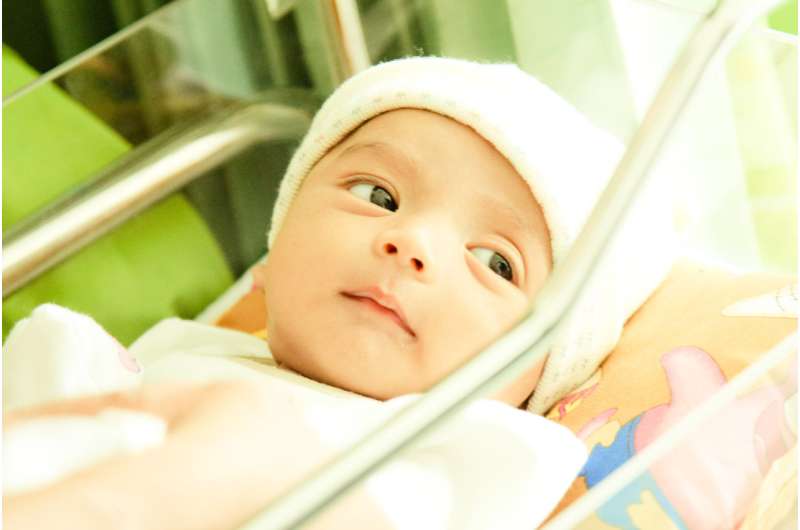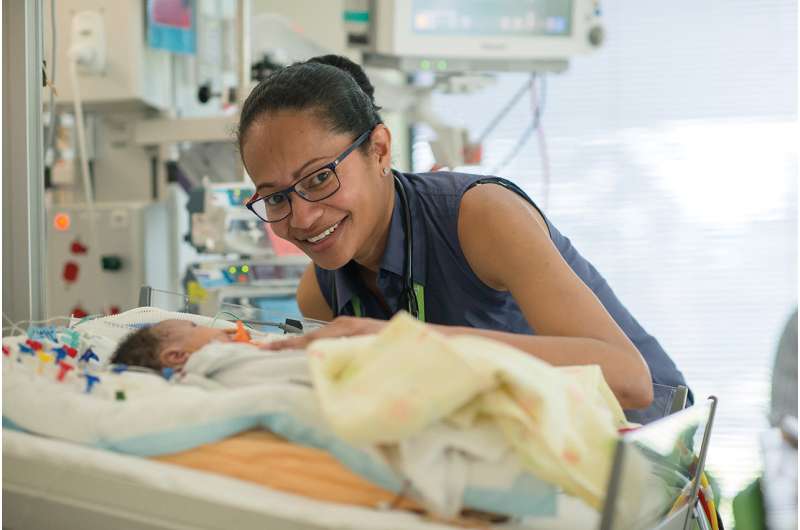The first baby in Indonesia to be vaccinated with the new vaccine. Credit: Melbourne Children’s Campus
Bio Farma, Indonesia's national vaccine company, is completing a phase 1 trial of a new rotavirus vaccine invented in Melbourne and has started pilot manufacture of the vaccine. Licencing trials are next, followed hopefully by release of the new vaccine in 2021.
The project is the culmination of a 42-year partnership between Melbourne and Gadjah Mada University which started after Ruth Bishop and colleagues found a virus, now known as rotavirus, in babies at the Royal Children's Hospital in Melbourne. They showed it was the cause of an acute gastroenteritis that was hospitalising 10,000 Australian children every year and killing more than half a million children worldwide.
The discovery eventually led to vaccines against rotavirus which are saving lives in the West but not yet in many developing countries, in part due to the limitations of the existing vaccines.
The new vaccine is the first rotavirus vaccine that can be given at birth, and the first made without using porcine products (bovine trypsin is used in its manufacture instead of porcine trypsin).
The vaccine was invented by the Melbourne Children's Global Health team working with Gadjah Mada University.
PT Bio Farma is commercialising the vaccine. Bio Farma was established in 1890 and is a state-owned enterprise that provides all the vaccines on Indonesia's immunisation schedule. That's 1.7 billion doses a year. Bio Farma is also a major supplier to UN agencies and global health initiatives, producing, for example, 1.4 billion doses of polio vaccines of which about 20 million are for Indonesian use. The company is based in Bandung, about 100 km east of Jakarta.
Monica Brook, Senior Registrar at The Royal Children’s Hospital, Paediatric Intensive Care Unit. Credit: Melbourne Children’s Campus
Provided by Science in Public





















